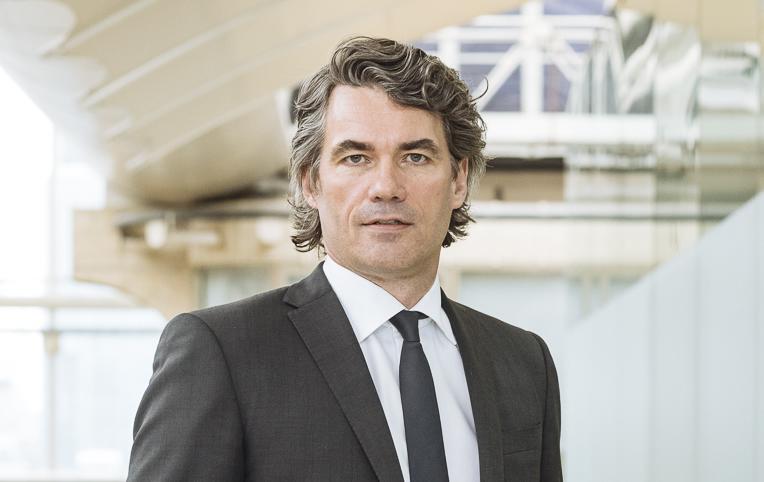Gavin Patterson: The marketing man whose charm ran out at BT
Telecoms chief made a splash with football rights deal but failed to deliver on ambitious targets

The departure of BT boss Gavin Patterson later this year, announced on Friday to little surprise given recent events, will bring to an end a roller-coaster period for BT under the leadership of one of the FTSE 100’s more well-known chiefs.
Patterson’s career began in marketing, and he spent nine years at P&G in various roles, before entering the telecoms sector when he joined Telewest, now Virgin Media, in 1999.
A chief executive with a background in marketing is fairly rare in the FTSE 100, and Patterson’s previous work as an ad man is often linked to his reputation for being a bit of a charmer. Sometimes more than a bit – in 2014, Management Today described him as “so handsome and well groomed he should be heading Armani”, listing the following attributes: “Slim, tall, chisel-jawed, dark-eyed, luxuriant-haired, gentle and genial”.
He definitely stands out among his peers. The outgoing BT boss is known for sporting a slightly less corporate look, with his swept-back, curly hair and signature open-necked shirt, no tie – when he replaced Ian Livingstone as BT chief executive, one former employee told the Financial Times that “Ian used to say that one button undone was fine, two was a bit racy, and three was Gavin”.
Patterson is also younger than the average chief exec, taking on the role when he was 46 (new CEOs tend to be in their fifties), and his youthful dynamism was evident when BT shook up the sports TV market not long after taking the helm.
“He really got off to a good start with BT Sport,” says Hargreaves Lansdown analyst George Salmon.
Jumping into the market where Sky had previously dominated, BT astounded onlookers with a £900m deal to snatch three seasons of Champions League coverage from its rival. Patterson has cited this as one of the ways that he’s taken BT from a company stuck in the past to one firmly focused on the future. He also led the group in a return to mobile, overseeing its £12.5bn takeover of EE in 2015, which has been a largely successful addition so far. “Early indications are that cross-selling within EE is going well, and they are selling more, to more, which is a great combination,” Salmon says.
However, the grand ambitions are likely the reason Patterson has ultimately been forced to stand down.
Although the market responded enthusiastically to the big plans in the early days, with the share price reaching £5 in 2015, while he delivered in some areas, in others the returns failed to materialise – and the share price has dropped back down to below 210p in recent weeks.
“The growth that was targeted just hasn’t come through,” says Russ Mould, investment director at AJ Bell. “The problem is that there hasn’t been the delivery.”
Mounting costs, including the group’s pension scheme and several regulatory fines, have cut cashflow.
“Ultimately that has hit the dividend, and that’s got investors on edge,” adds Mould.
A lot of the trouble that’s marked the later period of Patterson’s leadership could be put down to a tough trading environment, and some of the problems BT has faced in the last two years (a financial scandal in its Italian business, regulatory crackdowns) have nothing to do with the person in charge, they would have happened anyway. But, says Mould, Patterson “made life difficult for himself by setting the bar so high”, and in the end, the recently announced plans to cut 13,000 jobs in a bid to save cash turned out to be the last straw for frustrated shareholders.
Commentators were stumped as to where Patterson will go next, but agreed that working at BT, which operates across so many industries, could set him up to move into a number of different fields.
And he could always go back to where he started – after all, there’s a big marketing gig going at WPP.
Join our commenting forum
Join thought-provoking conversations, follow other Independent readers and see their replies
Comments
Bookmark popover
Removed from bookmarks